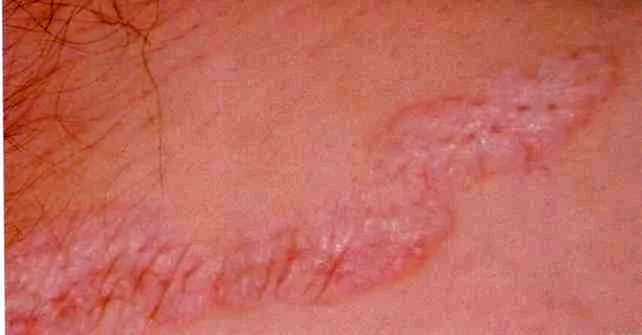Secondary lesions Summary
- 1. Crust: Dried serum (or exudate)
- 2. Scale: Thickened, loose, readily detached fragment of cornified layer
- 3. Excoration: Shallow linear abrasion caused by scratching.
- 4. Erosion: Loss of epidermis (heals without scarring)
- 5. Ulcer: loss of epidermis and dermis (heals with scarring)
- 6. Fissure : linear crack in the skin
- 7. Scar: Permanent lesion due to abnormal formation of connective tissue following injury.
- 8. Atrophy:
- i. Superficial: thining of skin with visible blood vessels
- ii. Deep : depression of skin surface
- 9. Lichenification: thickened skin with accentuated skin markings
- 10. Sclerosis: induration of skin
Secondary skin lesions
Crust
- A crust is a dried exudate, which may have been serous, purulent or haemorrhagic.
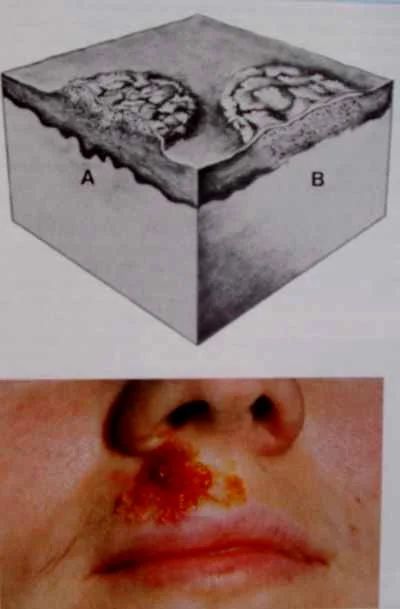
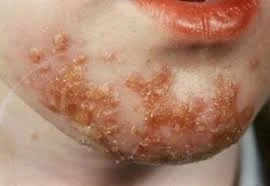
Excoriation
- A haemorrhagic excavation of the skin resulting from scratching.
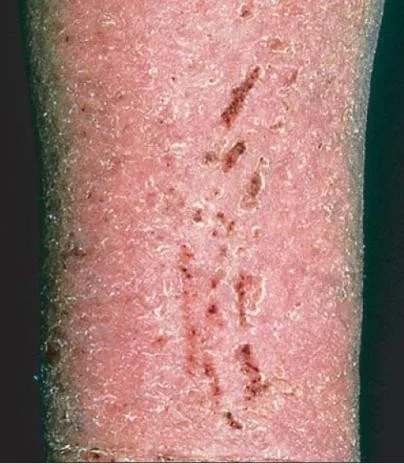
Lichenification
- Thickening of the skin with exaggeration of the skin creases.
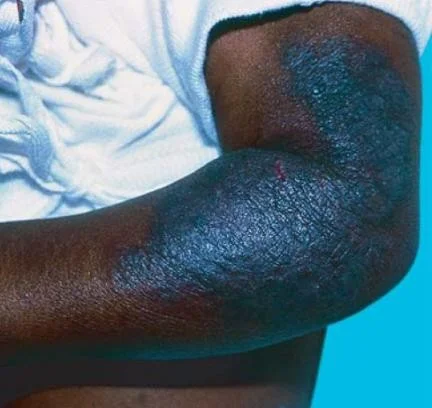
Chronic itching
Scar
- The final stage of healing of a destructive process (disease or injury) that has involved the deeper dermis results in a white, smooth, firm, shiny lesion.
- Atrophic, or hypertrophic
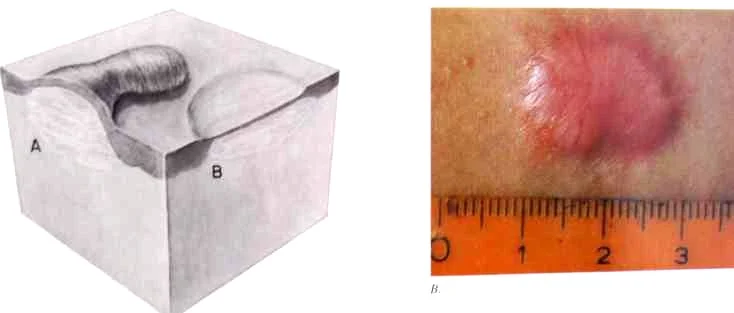
Scale
- A scale is a flat plate (lamella) or flake of stratum corneum.
- The epidermis is replaced every 28 days
- Fine (eczema) / thick silver scale (psoriasis)
- No scaling in dermal pathologies
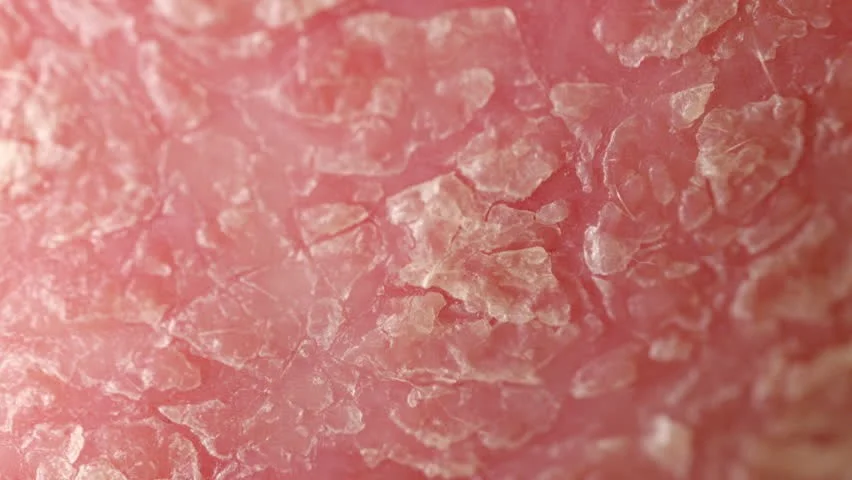
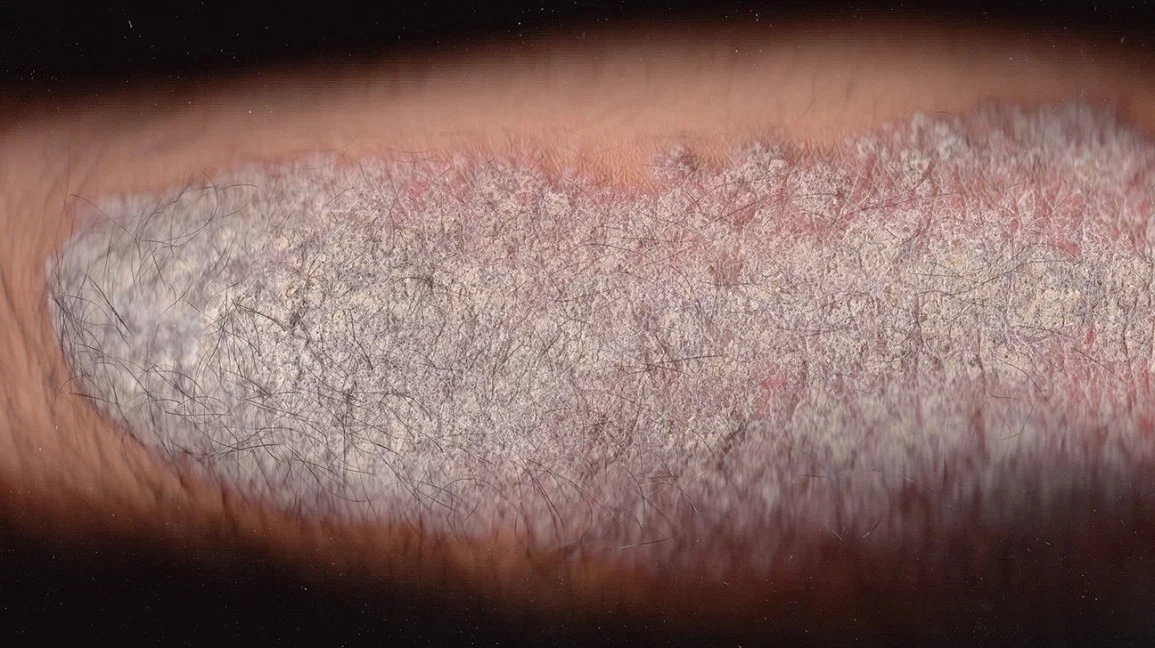
Necrosis
- Death, or necrosis, of skin tissue is usually black in colour.
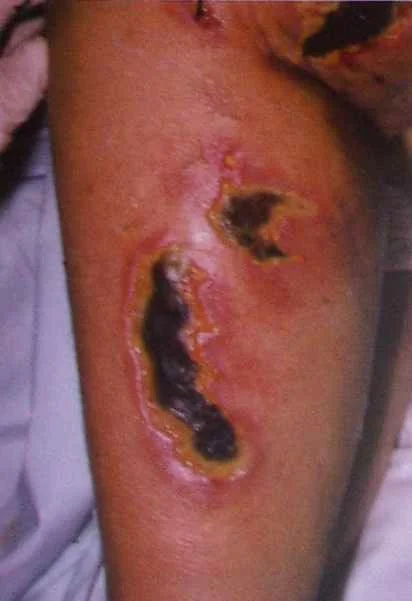
Erosion
- Erosions are loss of part or all of the epidermis
- They may occur after a vesicle forms and the top peels off
- They weep and become crusted
- A partial break in the epidermis is known as an erosion
- It heals without scarring unless secondary infection occurs.
- Commonly following a blister
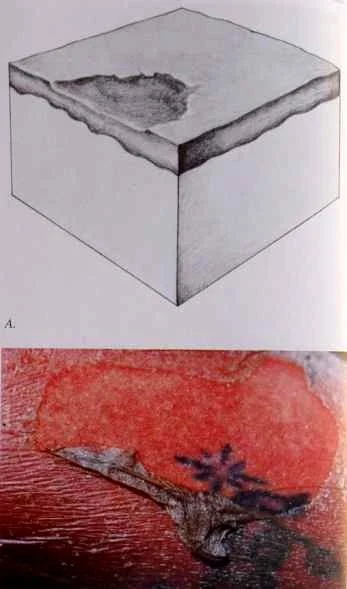
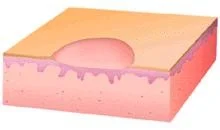
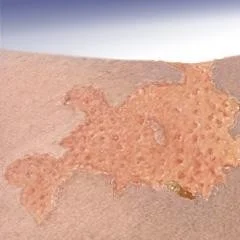
Ulcer
- (L. ulcus, “sore”)
- Ulcers are complete loss of the epidermis in addition to part of the dermis
- They often heal with scarring; erosions usually do not heal with scars
- An ulcer is a full-thickness loss of the epidermis
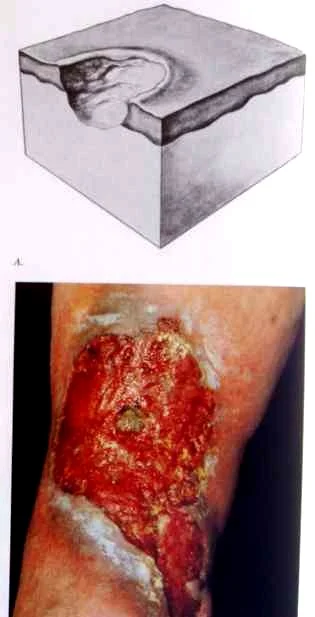
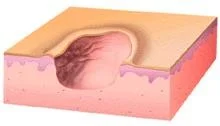
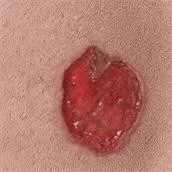
Fissure
a linear cleavages or cracks in the skin.
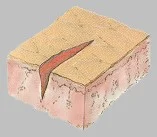
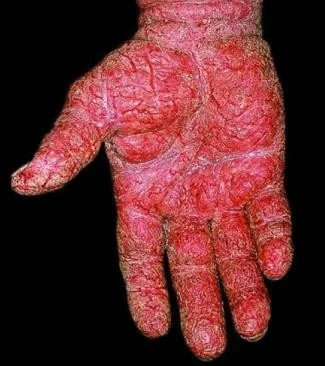
Atrophy
- Thinning and transparency of the skin
- Caused by diminution of the epidermis, the dermis, or both
- Wrinkling and translucency
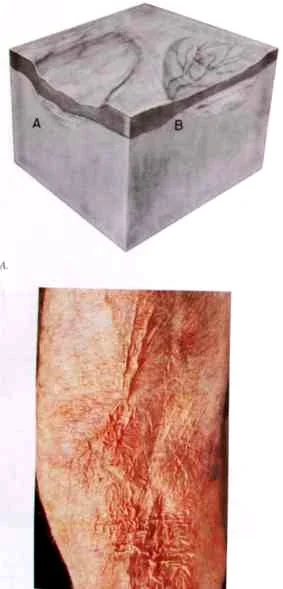
Sclerosis
- A circumscribed or diffuse hardening or induration of the skin
- A result of dermal or subcutaneous edema, cellular infiltration, or collagen proliferation
